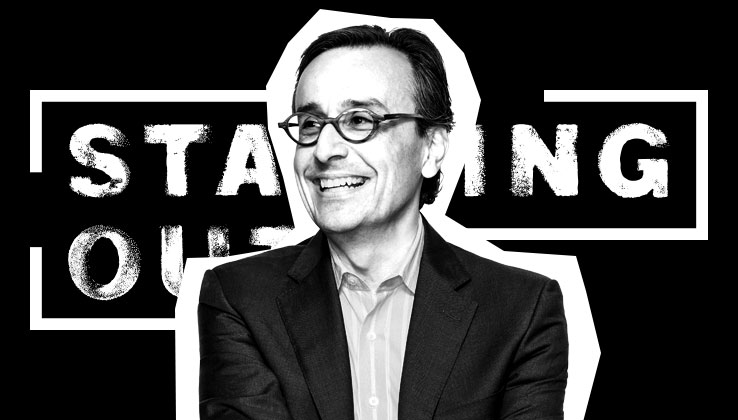Secure your place at the Digiday Media Buying Summit in Nashville, March 2-4

In the year of the pivot to reality, marketers are rethinking their reliance on agencies and relationships with platforms. The General Data Protection Regulation has forced companies to reconsider business approaches, but good businesses are resilient. Antonio Lucio, HP’s chief marketing officer, prizes resilience. On this episode of Starting Out, Lucio discusses championing diversity, the role of marketing in driving the business and more.
Subscribe: iTunes | Google Play | Stitcher | RSS | Anchor
To do marketing today, you need to have ample sources of data. Most of that data is commoditized. You need deep analytics and insight capabilities, creative content, programmatic buying capabilities. Programmatic buying is here to stay. Then, you want to have attribution modeling to measure what you’re able to do. As a client, you have to build internal capabilities in four or five of those areas. The fact that we know more about our customer than an agency, that implies a change in the model. Change is not on the creative side.
Moving creatives in-house is not a sustainable model over time. There’s never been a bigger need for creativity than now, and therefore, creatives are safe. Agencies have to reinvent themselves and have to go back to their roots. They have to provide strong creative products and not those value-added services that clients are becoming better at. We need the creative output.
The role [of a CMO] has gotten bigger and broader, but it has nothing to do with viewability or fraud. We serve multiple stakeholders in the business, and they all converge on social media. So you have an integrated strategy and story in every aspect of your business — corporation, product, brand. The need for that integrated story, consistency and integrity has made the role of a CMO bigger. We spend way too much time talking about this with the press and not enough time showing how marketing is building the business. That’s what gets us a seat at the table.
An ideal situation is when your personal purpose finds a corporation that shares your values and principles. That happened to me with HP. Fifty percent of our board are females or people of color. I would not have been as vocal if I didn’t have the support of the corporation that believes that diversity and inclusion is both a value and business imperative. We asked agencies to ensure that we had teams that represented the communities we serve. We made sure our own did, too. Fifty percent of my top marketing talent are female. The most important number is women in senior leadership roles. In many of our agencies, when we started, [it] was zero. Now, it’s 52 percent. That was the first step. The next is to fill positions with people of color.
Facebook is here to stay. It’s become part of the culture. We talked about Cambridge Analytica and Russian interference, but there hasn’t been a significant impact on [Facebook’s] business. We all need to figure out how to best reach the consumer, taking into consideration their rights, because privacy should be a default position and our ability to capture their imagination with meaningful content.
I’ve been in the industry a long time. We will adapt, and we will make it work. The sky will not fall down. It’s time for customers to own their data and right for them to choose what they do and don’t want to receive. Businesses are resilient. We will innovate around it and we will create offerings that fit their needs and ours.
More in Marketing

WTF are tokens?
When someone sends a prompt or receives a response, the system breaks language into small segments. These fragments are tokens.

AI is changing how retailers select tech partners
The quick rise of artificial intelligence-powered tools has reshaped retailers’ process of selecting technology partners for anything from marketing to supply chain to merchandising.

YouTube’s upmarket TV push still runs on mid-funnel DNA
YouTube is balancing wanting to be premium TV, the short-form powerhouse and a creator economy engine all at once.





